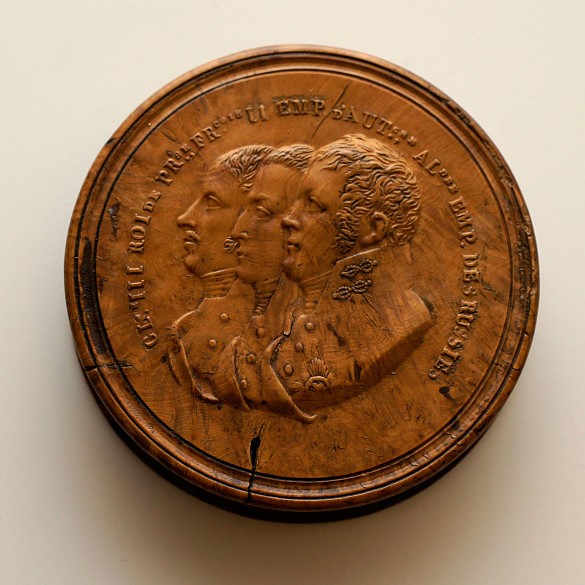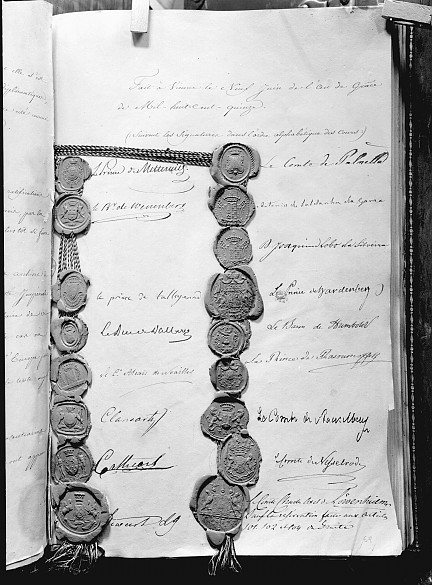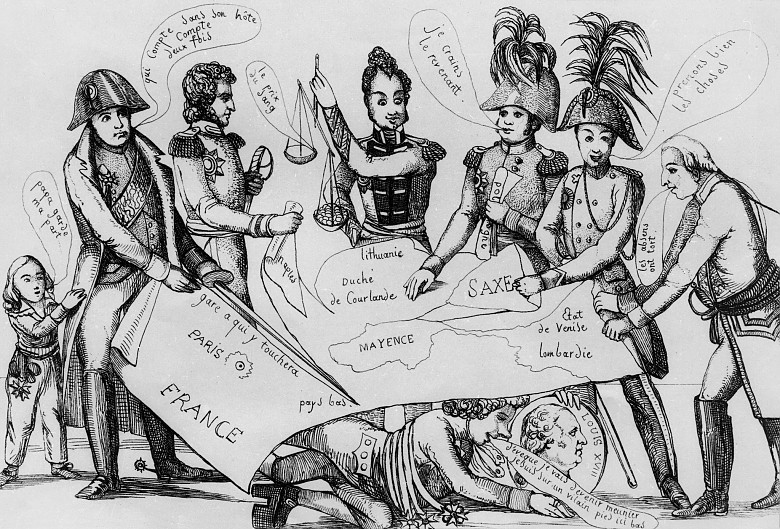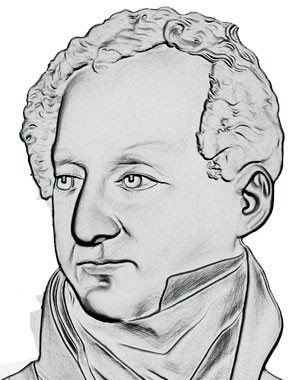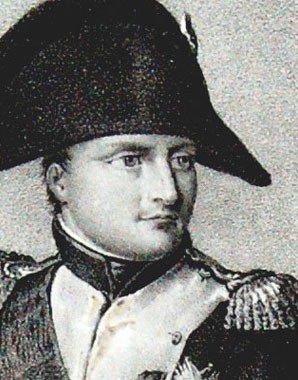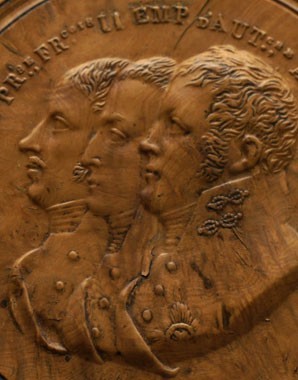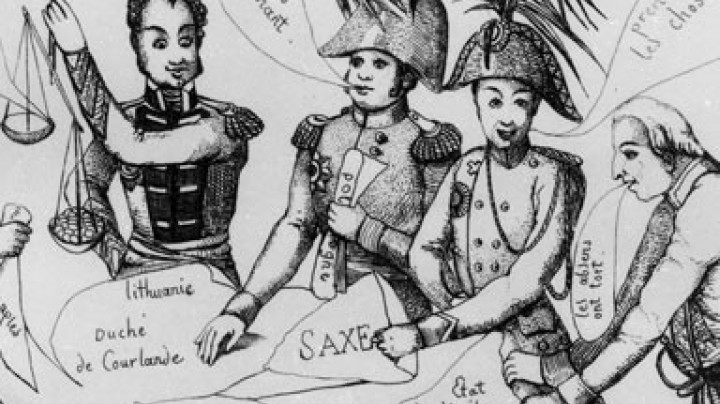The new ordering of Europe in 1814/15
Although posterity knows it best as the ‘dancing Congress’, the Congress of Vienna was in fact a highly serious event of power politics. It imposed a new order on Europe after the turmoil of the Napoleonic wars.
The ‘Battle of Nations’ at Leipzig had seen Napoleon decisively defeated. In 1814/15, a congress was convened at Vienna in order to reorder Europe in the aftermath of the French Revolution. The fundamental idea behind this series of political negotiations between the European powers can be summarized in the catchword ‘Restoration’ – in other words, the re-establishment of the status quo before the French Revolution. The French caricature presents an ironic picture of Europe’s rulers dividing up the ‘cake’, that is to say, negotiating the borders between the states of their continent. In the Congress’s final act, Prince Metternich, who in his function as chairman described himself as the ‘coachman of Europe’, saw his goal made into reality, namely, the restoration of the balance of power between the five great powers of Europe: Russia, Great Britain, Austria, Prussia and France.
Although Austria had to accept certain smaller losses – the territories in Swabia and the Breisgau, the Austrian Netherlands and western Galicia – it emerged from the Congress strengthened, not least because of having extended its footing in Italy. However, it was precisely the fact of Habsburg rule in the Italian territories that paved the way for one of the most important conflicts of the nineteenth century.
In addition to the territorial changes, another significant step taken by the Congress of Vienna was the foundation of the German Confederation. Furthermore, only a few months after the conclusion of the Congress, the rulers of Austria, Prussia and Russia forged the Holy Alliance.
While the Congress of Vienna was a major political event mounted by the great powers of Europe, it was accompanied by a whole programme of activities, some official and some purely pleasurable, of which the famous comment that ‘the Congress is dancing’ was an apt illustration.
